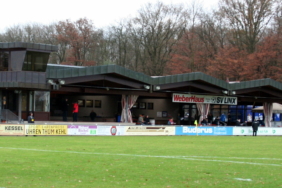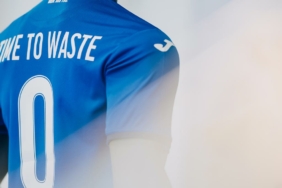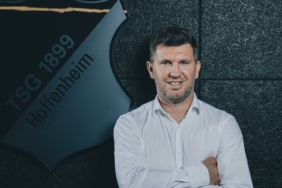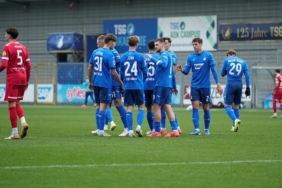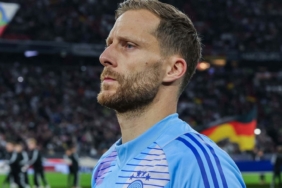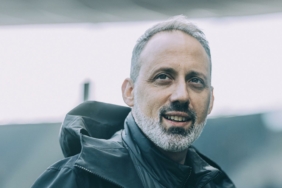“It was an extraordinary and exciting journey that I was able to go on with TSG,” says Frank Briel in summary of his time at the club. “I am grateful for the many experiences and unique adventures. However, I have now spent more than a third of my life at TSG and made the decision for myself over the course of last year that it would be time to call it a day after this season in order to reorient myself once again,” explains Briel. “I was all the happier that we managed to stay in the league after an intense, complicated and gruelling season. I have accompanied this club from the Regionalliga all the way to the Champions League, met interesting people and been responsible for exciting projects in a managerial position. In the past two decades, there have been enormous challenges to overcome, especially at the financial level. Leading a medium-sized company through the pandemic years was particularly challenging,” said the outgoing managing director as he looked back.
“Frank Briel has been a reliable companion and an excellent professional whose work has also met with high recognition throughout the league,” said majority shareholder Dietmar Hopp in praise of the man he appointed as managing director in 2010. “I would like to thank Frank for his work and wish him every success and all the best for his future endeavours,” added Hopp.
Frank Briel joined TSG Hoffenheim in 2006. Before that, he had worked for several years in the corporate controlling department of the Walldorf-based software company SAP, and later as an assistant to Gerhard Oswald, the company’s CEO. Even there, Briel was closely involved in football, and the departmental team he founded had a fitting name: “Controlled offence”. Born in Wiesbaden, Briel has been involved in sports since his childhood. He was a passionate basketball player and played for the TGS Ober-Ramstadt in southern Hesse in the second tier of the basketball Bundesliga.
Briel studied controlling, organisation and process engineering at the University of Stuttgart, the subject of his diploma thesis was: “Controlling in professional sports organisations using the example of Borussia Dortmund”. When he moved to TSG in the regional league after the 2006 World Cup in Germany, however, a comparison with Dortmund was still a pipe dream. As general manager, he mainly had to deal with infrastructure projects in the first few years, starting with the expansion of Hoffenheim’s old stadium. A picture of the resplendent Dietmar Hopp Stadium hung behind his desk in the TSG office in Zuzenhausen for a long time – as a reminder of where the club had come from.
Briel climbed the ranks and was soon appointed managing director in 2010. There he remained true to his principle of controlled offence. “It is a huge privilege to work with Dietmar Hopp as the majority shareholder,” said Frank Briel back in 2015, “but for me as a businessman, it is painful every time I have to present a negative result.” At an early stage, the business graduate had already formulated the objective assigned to him: “In the medium and long term, we want and need to operate in the black. We have the clear task of ensuring that TSG 1899 Hoffenheim Fussball-Spielbetriebs GmbH can stand on its own two feet. That is challenging, but it can be achieved and is definitely possible.”
This goal was achieved for many years thanks to outstanding sporting development as well as surplus transfer income. Since the 2015/16 season, TSG have been able to generate a profit of more than 120 million euros. The effects of the Covid pandemic, however, had an impact on the club as well as all its competitors, and Frank Briel recently had to announce a loss in the double-digit millions. It was a painful experience for the outgoing TSG managing director, who had also taken on responsibility for sporting matters in recent years.
For the 2022/23 season, which is now coming to an end, Frank Briel predicts a return to profitability and is thus leaving a company in rude health. The 48-year-old most recently described the orientation of the club as follows: “Basically, we are a small, agile medium-sized company that has always succeeded in holding our own against much larger competitors.”



